Nori Human Sirtuin 6 ELISA Kit
$461.00 – $832.00
This ELISA kit is for quantification of sirtuin 6 in human. This is a quick ELISA assay that reduces time to 50% compared to the conventional method, and the entire assay only takes 3 hours. This assay employs the quantitative sandwich enzyme immunoassay technique and uses biotin-streptavidin chemistry to improve the performance of the assays. An antibody specific for sirtuin 6 has been pre-coated onto a microplate. Standards and samples are pipetted into the wells and any sirtuin 6 present is bound by the immobilized antibody. After washing away any unbound substances, a detection antibody specific for sirtuin 6 is added to the wells. Following wash to remove any unbound antibody reagent, a detection reagent is added. After intensive wash a substrate solution is added to the wells and color develops in proportion to the amount of sirtuin 6 bound in the initial step. The color development is stopped, and the intensity of the color is measured.
Alternative names for Sirtuin 6: SIRT6, Sirtuin 6, SIR2L6
This product is for laboratory research use only not for diagnostic and therapeutic purposes or any other purposes.
- Description
- How Elisa Works
- Product Citations
- Reviews (0)
Description
Nori Human Sirtuin 6 ELISA Kit Summary
Alternative names for Sirtuin 6: SIRT6, Sirtuin 6, SIR2L6
| Assay Type | Solid Phase Sandwich ELISA |
| Format | 96-well Microplate or 96-Well Strip Microplate |
| Method of Detection | Colorimetric |
| Number of Targets Detected | 1 |
| Target Antigen Accession Number | Q8N6T7 |
| Assay Length | 3 hours |
| Quantitative/Semiquantitative | Quantitative |
| Sample Type | Plasma, Serum, Cell Culture, Urine, Cell/Tissue Lysates, Synovial Fluid, BAL, |
| Recommended Sample Dilution (Plasma/Serum) | No dilution for sample <ULOQ; sufficient dilution for samples >ULOQ |
| Sensitivity | 12 pg/mL |
| Detection Range | 62.5-4000 pg/mL |
| Specificity | Human Sirtuin 6 |
| Cross-Reactivity | < 0.5% cross-reactivity observed with available related molecules, < 50% cross-species reactivity observed with species tested. |
| Interference | No significant interference observed with available related molecules |
| Storage/Stability | 4 ºC for up to 6 months |
| Usage | For Laboratory Research Use Only. Not for diagnostic or therapeutic use. |
| Additional Notes | The kit allows for use in multiple experiments. |
Standard Curve
Kit Components
1. Pre-coated 96-well Microplate
2. Biotinylated Detection Antibody
3. Streptavidin-HRP Conjugate
4. Lyophilized Standards
5. TMB One-Step Substrate
6. Stop Solution
7. 20 x PBS
8. Assay Buffer
Other Materials Required but not Provided:
1. Microplate Reader capable of measuring absorption at 450 nm
2. Log-log graph paper or computer and software for ELISA data analysis
3. Precision pipettes (1-1000 µl)
4. Multi-channel pipettes (300 µl)
5. Distilled or deionized water
Protocol Outline
1. Prepare all reagents, samples and standards as instructed in the datasheet.
2. Add 100 µl of Standard or samples to each well and incubate 1 h at RT.
3. Add 100 µl of Working Detection Antibody to each well and incubate 1 h at RT.
4. Add 100 µl of Working Streptavidin-HRP to each well and incubate 20 min at RT.
5. Add 100 µl of Substrate to each well and incubate 5-30 min at RT.
6. Add 50 µl of Stop Solution to each well and read at 450 nm immediately.
Background:
Sirtuin 6 (SIRT6 or Sirt6) is a stress responsive protein deacetylase and mono-ADP ribosyltransferase enzyme encoded by the SIRT6 gene.[1] SIRT6 is member of the mammalian sirtuin family of proteins, which are homologs to the yeast Sir2 protein. SIRT6 is a chromatin-associated protein that is required for normal base excision repair and double-strand break repair of DNA damage in mammalian cells.[2][3] SIRT6 appears to function in multiple molecular pathways related to aging, including DNA repair, telomere maintenance, glycolysis and inflammation.[1] SIRT6 promotes the repair of DNA double-strand breaks by the process of non-homologous end joining and homologous recombination.[4] SIRT6 stabilizes the repair protein DNA-PKcs (DNA-dependent protein kinase catalytic subunit) at chromatin sites of damage.[5] Deficiency of SIRT6 in mice leads to abnormalities that overlap with aging-associated degenerative processes.[2] A study of 18 species of rodents showed that the longevity of the species was correlated with the efficiency of the SIRT6 enzyme.[3] Over-expression of SIRT6 in “middle-aged” and pre-senescent cells strongly stimulates fibroblast homologous recombinational repair HRR.[6] SIRT6 also rescues the decline in base excision repair of aged human fibroblasts in a PARP1 dependent manner.[7]
References
- Frye RA (2000). Biochem Biophys Res Communications. 273 (2): 793–98.
- Mostoslavsky R, et al. (2006). Cell. 124 (2): 315–29. doi:1016/j.cell.2005.11.044.
- Tian X, et al. (2019). Cell. 177 (3): 622–638. doi:1016/j.cell.2019.03.043.
- Klein MA, Denu JM (2020). J Biol Chem295 (32): 11021–11041. doi:1074/jbc.REV120.011438.
- McCord RA, et al. (2009). 1 (1): 109–21.
- Mao Z, et al. (2012). Proc Natl Acad Sci USA. 109 (29): 11800–05.
- Xu Z, et al. (2015). Cell Cycle. 14 (2): 269–76.
Product Citations
Be the first to review “Nori Human Sirtuin 6 ELISA Kit”
You must be logged in to post a review.























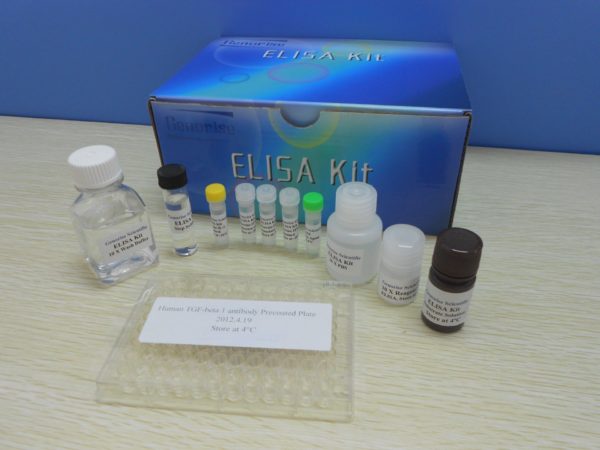
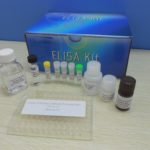
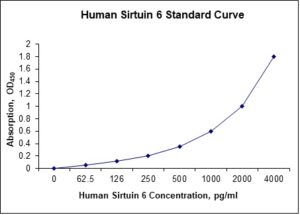
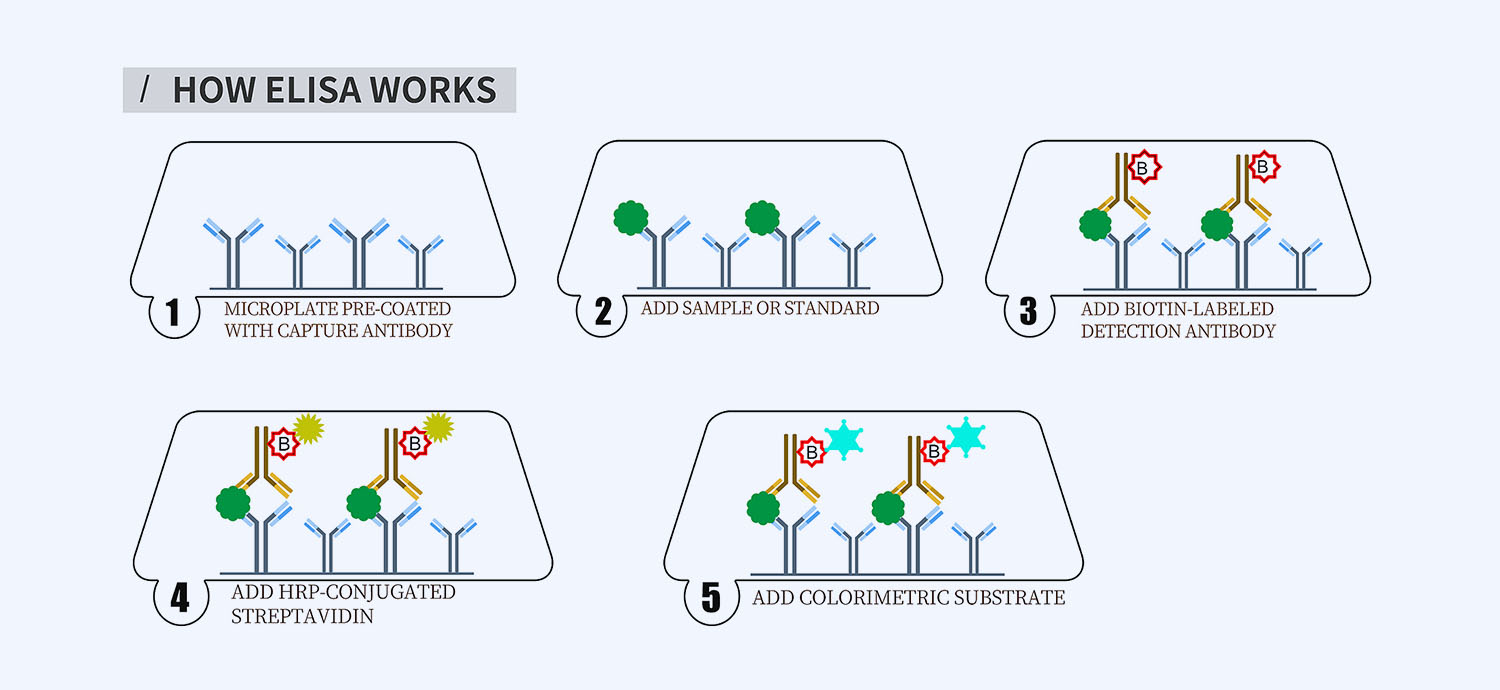
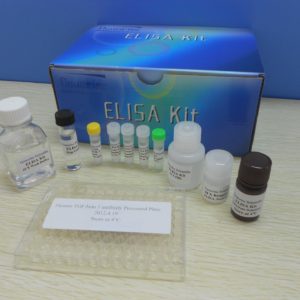
Reviews
There are no reviews yet.